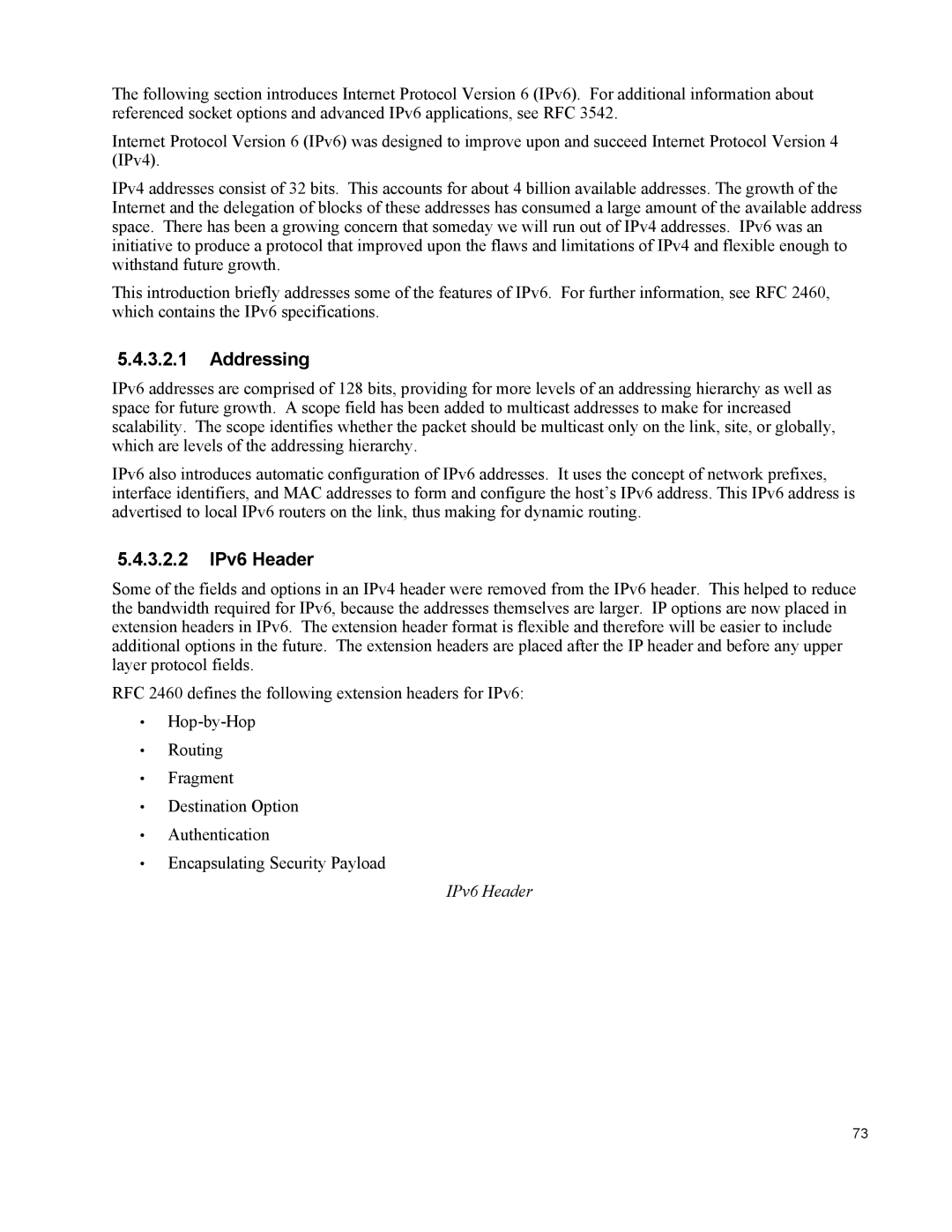The following section introduces Internet Protocol Version 6 (IPv6). For additional information about referenced socket options and advanced IPv6 applications, see RFC 3542.
Internet Protocol Version 6 (IPv6) was designed to improve upon and succeed Internet Protocol Version 4 (IPv4).
IPv4 addresses consist of 32 bits. This accounts for about 4 billion available addresses. The growth of the Internet and the delegation of blocks of these addresses has consumed a large amount of the available address space. There has been a growing concern that someday we will run out of IPv4 addresses. IPv6 was an initiative to produce a protocol that improved upon the flaws and limitations of IPv4 and flexible enough to withstand future growth.
This introduction briefly addresses some of the features of IPv6. For further information, see RFC 2460, which contains the IPv6 specifications.
5.4.3.2.1Addressing
IPv6 addresses are comprised of 128 bits, providing for more levels of an addressing hierarchy as well as space for future growth. A scope field has been added to multicast addresses to make for increased scalability. The scope identifies whether the packet should be multicast only on the link, site, or globally, which are levels of the addressing hierarchy.
IPv6 also introduces automatic configuration of IPv6 addresses. It uses the concept of network prefixes, interface identifiers, and MAC addresses to form and configure the host’s IPv6 address. This IPv6 address is advertised to local IPv6 routers on the link, thus making for dynamic routing.
5.4.3.2.2IPv6 Header
Some of the fields and options in an IPv4 header were removed from the IPv6 header. This helped to reduce the bandwidth required for IPv6, because the addresses themselves are larger. IP options are now placed in extension headers in IPv6. The extension header format is flexible and therefore will be easier to include additional options in the future. The extension headers are placed after the IP header and before any upper layer protocol fields.
RFC 2460 defines the following extension headers for IPv6:
•
•Routing
•Fragment
•Destination Option
•Authentication
•Encapsulating Security Payload
IPv6 Header
73
